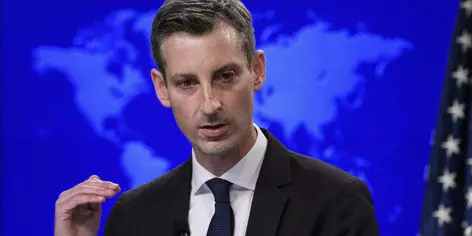
We Support Free Press: US State Department, calling out ban on BBC flick
text_fieldsWashington: Responding to India’s banning of BBC documentary on PM Modi, the US State Department said it supported free press around the world.
Contrary to his previous evasive response, the US State Department spokesperson, Ned Price, stressed on the importance of democratic principles of freedom of expression.
Ned Price said freedom of expression, freedom of religion or belief, as human rights, contribute to the strengthening of our democracies.
Alongside in a more veiled criticism, Price said India’s banning of BBC flick on Modi was a “matter of press freedom”, according to a report by NDTV.
Answering media during regular briefing on Wednesday he said the US supported free press around the world, and adding, “We continue to highlight the importance of democratic principles, such as freedom of expression, freedom of religion or belief, as human rights that contribute to the strengthening of our democracies. This is a point we make in our relationships around the world. It's certainly a point we've made in India as well.”
Price on Monday referred to “numerous elements that bolster the US' global strategic partnership with India”, shying away from the question on his response to India’s ban on BBC flick.
Further, he summed up his response in just one sentence, saying that “I am not familiar with the documentary you’re referring to”.
Afterwards he went on describing the shared values between United States and India as two thriving, vibrant democracies.
Earlier British Prime Minister Rishi Sunak shot down a question in Parliament on Modi’s alleged role in Gujarat riots, saying the he “doesn’t agree with the characterisation” of Indian PM.
Pakistan-origin MP Imran Hussain brought forth the topic for a discussion in the British Parliament.
BBC aired a two-part series examining PM Modi’s leadership as Gujarat Chief Minister during the Gujarat riots of 2002.
Following criticism from right wing outfits, the documentary was removed from YouTube and other platforms.
The Ministry of External Affairs (MEA) called the BBC series a propaganda piece having no objectivity.






















